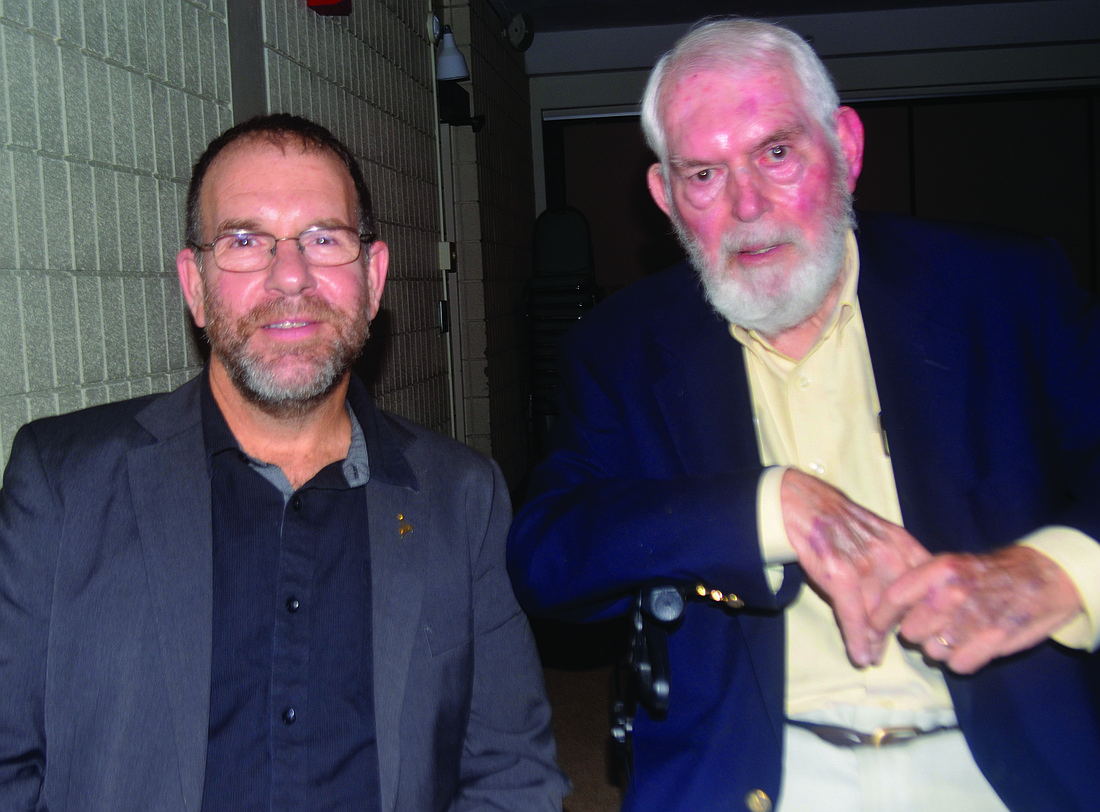- May 10, 2025
-
-
Loading

Loading

Jonathan Dekel-Chen and his son, Etai Dekel-Chen, are the founders of the Youth Village for the Performing Arts in Israel, which opened Oct. 17 only miles from the country’s southern border of the Gaza Strip.
Located in an agricultural, war-torn region of the country called Eshkol, the school opened on the same day Dekel-Chen spoke to a crowd of nearly 100 guests at the Plymouth Harbor retirement community in Sarasota.
Dekel-Chen began his address by saying there was a good reason why he was away from the school on such a monumental day: a request to speak from both his mother-in-law, Sue Johnson, a Plymouth Harbor resident, and Marlow Cook, a former Republican U.S. senator from Kentucky.
Cook, who is a current Plymouth Harbor resident and good friend of Dekel-Chen, introduced him to the crowd Friday evening, citing some of his background. Dekel-Chen is a native of Connecticut who has lived in Israel for the past 23 years; a former member of the Israeli military; a Ph.D. holder; and the author of several publications on Russian, Eastern European and Jewish studies.
Dekel-Chen, the outgoing chairman for the Department of Jewish History and Contemporary Jewry at the Hebrew University of Jerusalem, was instrumental in the founding of the institute, which works to provide a world-class arts education to high school-aged students from south Israel amid the growing hazards their region faces.
“We are operating in a region in utter need of hope,” Dekel-Chen said of the school and its location. “But I believe there is no better place to advance the idea of social justice.”
At the Youth Village in Eshkol, he serves as the school’s chairman of the board and co-founder. When he and his son began work on the project more than three years ago, it was only a dream of helping foster a better way of life for the people in his area.
But now, in the residential boarding school’s inaugural year, the Youth Village consists of three faculty members and 19 students, and Dekel-Chen says the institute has a goal of growing by 30 students every year, one day becoming a place for underprivileged teenagers from across Israel to achieve their musical and artistic potential.
Dekel-Chen’s speech, “Between Gaza and Jerusalem: a View from the Border,” focused on his experience as an American and Israeli citizen living in a region many consider to be one of the most violent places in the world.
Dekel-Chen said people in his community live their lives day by day, and he admits that he is on the liberal side of Israeli politics, even though he says force has proven to be his country’s best way to defend itself in a region surrounded by many who wish to see the state of Israel come to an end.
“A better future will come to Israel when both sides of the conflict stop believing their current leaders,” he said. “Peace needs to be looked at as something more than a short-term goal so the future of the country won’t be subjected to the atrocities and violence both my son and I have seen after being drafted into the Israeli military.”